England manager: Is it the best or worst job in sport?
- Published
- comments
Former England manager Roy Hodgson 'unhappy' with England media call
Euro 2016 |
|---|
Venue: France Date: 10 June - 10 July |
Coverage: Live on BBC TV, BBC Radio 5 live, BBC 5 live sports extra and BBC Radio Wales. Plus the BBC Sport website and app |
The Football Association has started its search for a new England manager - the 12th man to take the job full time since the country enjoyed its only success under Sir Alf Ramsey at the 1966 World Cup.
Roy Hodgson's successor will take over an England team badly damaged by the humiliation of an exit to the minnows of Iceland at the last-16 stage of Euro 2016., external
Hodgson, 68, cut a broken and fragile figure at his final news conference in France, another victim of what some are starting to see as the impossible job of ending England's years of hurt.
The role of England manager is full of possibilities but awash with potential downfalls - so is it the best or worst job in sport?
The best job in the world
The most important man in England?
The public profile of being England's football manager is often put on a par with the Prime Minister, a man who can shape the public mood with the joy of victory and, more often than not in major tournaments, the pain of defeat.
It is a job which has the potential to make someone a legend if they get it right and emulate the success of Ramsey on 30 July 1966 when England beat West Germany 4-2 at Wembley in the World Cup final.
The man who gets it right is made for life. It still represents the greatest opportunity in English sport if someone can harness the passion and potential of the national game.
Rich rewards
As Roy Hodgson made his emotional departure from England's media base in a secluded quarter of Chantilly, no talk of money could console a man whose reputation and record will be stained forever by the manner of defeat by Iceland, the minnows ranked 34th in the world with a population of just 330,000.
Hodgson was, however, the highest-paid manager at Euro 2016 at a reported £3.5m a year, eclipsing Italy's Chelsea-bound coach Antonio Conte at £3.15m a year and Turkey's Fatih Terim at £2.7m.
Nice work if you can get it and put up with the criticism that comes with a group-stage exit after only two matches at the 2014 World Cup in Brazil and the ignominious end here.
Northern Ireland's Michael O'Neill returned home a national hero after they went out to Wales in the last 16 and he is understood to be on £250,000 a year.
It was reported Chris Coleman - who has guided Wales to the quarter-finals - was on £200,000, external a year before signing an improved two-year deal in May., external
And as chief executive Martin Glenn announced the FA would conduct a global search to seek out the best man for the job, not simply an Englishman, it was clear that whoever takes on the task of replacing Hodgson will be handsomely rewarded for the privilege to enhance the attraction of the job.
The only way is up
England's major tournaments under Hodgson
England's next boss will find the bar set at its lowest after Euro 2016, following on from the failure of Brazil two years ago and that track record of disappointment stretching back to 1966.
Hodgson's reign has drained expectation from England's supporters with the loss to Iceland standing alongside - or perhaps even below - the 1-0 defeat by the United States at the 1950 World Cup.
The graph can surely only move upwards, which is the perfect starting point for any new manager.
He will have no high expectations to meet, no track record of success to maintain, and pretty much no way to lower the mood of England's followers.
Sounds perfect.
The young generation
England's dismal showing in France, with only one win over Wales set against draws against Russia and Slovakia and the defeat by Iceland, belied some of the excitement generated before Euro 2016 by the emergence of an exciting crop of young players.
The England job presents the chance to mould a team of genuine significance by the time the World Cup comes around again in Russia in 2018.
There was always the lingering feeling that Hodgson, as one of the elder statesmen of international management, could never quite relate to the younger brigade and was unable to release their full potential.
If the next England manager can press the right buttons he has plenty of raw materials to work with in the shape of Manchester United's 18-year-old forward Marcus Rashford, Tottenham striker Harry Kane, 22, and team-mate Dele Alli, who is only 20. Manchester City forward Raheem Sterling is still only 21.
He will also have the chance to nurture two outstanding talents from Everton in defender John Stones and midfielder Ross Barkley. They are both only 22 and were the only two outfield players not to see any action in France.
Hodgson's successor will not only be able to mine that rich seam, but will also note that England Under-21s have just won the prestigious Toulon Tournament in France for the first time in 22 years.
The best of everything
The next man through the door of the FA's offices will also have the best of everything when it comes to facilities.
St George's Park, despite its somewhat remote location tucked away in Staffordshire, has been built as a monument to the future of English football at a cost of £100m and will be at his full disposal.
It is not only a hub designed to produce the next generation of coaches, it is also where FA technical director Dan Ashworth and his team want to provide England's next manager with the tools to do his job.
He will not be expected to work at St George's Park, but some of his chances of success will be moulded by what goes on there in developing England's youth team, educating coaches and also provides cutting edge sports medicine and sports science work.
The rebuilt Wembley is also a home fit for a football king - it just needs the right man to wear the crown.
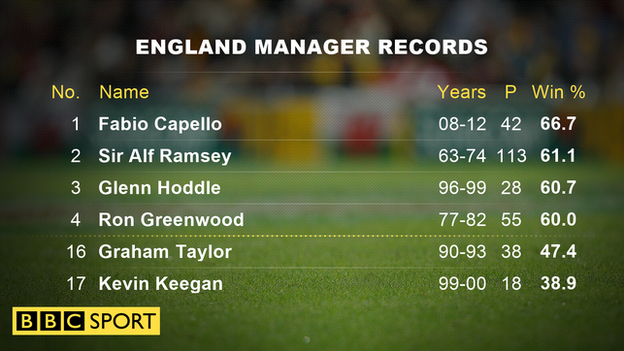
England's most and least successful managers (taking charge of a minimum of 10 matches)
The worst job in the world
End a 50-year curse
He will have to turn a tide of history stretching back 50 years, producing something beyond several managers who achieved great things in club football, such as Don Revie, Ron Greenwood, Sir Bobby Robson, Terry Venables, Sven-Goran Eriksson and Fabio Capello.
The FA's next choice must somehow find a way to cure a problem that has run through England's football teams in recent history and which has provided the narrative to the succession of disappointments.
He will also have to mould a style of play and sureness of touch that eluded Hodgson, who seemed unsure of how to play and who to play in France.
Chief executive Glenn said: "We want to move to a new approach, a new management team and it's our commitment to say that in future tournaments every game, every match, every half we will punch our weight.
"We will go to tournaments as contenders and get over this brittleness."
So there is the task right there.
Under the microscope
Euro 2016: The pundits have their say on England's exit from the tournament
Hodgson, despite admitting his reluctance to attend his final news conference, made a point of saying he had been fairly treated by the media during his four years in charge.
He knew, however, that he would be facing a storm of criticism for England's failure at Euro 2016, perfectly understandable given the strength of feeling following that Iceland reverse.
And that same scrutiny will apply to the man who follows Hodgson.
He will find every team selection pored over, every tactical nuance examined, every result analysed. It goes with the territory and can be uncomfortable - but it is something that must be handled.
Quite simply the eyes of the nation are on this solitary figure. Any weakness will be brutally exposed - a fact of life for England's manager.
Pressure points

Steve McClaren's use of an umbrella during a dismal 3-2 loss to Croatia was the defining image of his reign
The job of England manager comes with a health warning attached: have a thick skin or else.
Graham Taylor, a thoroughly decent and dignified man, was portrayed as a turnip after a defeat by Sweden at Euro 92.
Kevin Keegan confirmed his decision to resign as England manager in a toilet after the final international game at the old Wembley in October 2000, a 1-0 loss to Germany in a World Cup qualifier, telling former FA chief executive David Davies: "I'm out of here. I'm not up to it."
Steve McClaren ended his reign portrayed as 'The Wally With The Brolly' after a Wembley defeat by Croatia that ended England's hopes of qualifying for Euro 2008 when he chose to protect himself from a torrential downpour with an umbrella.
And then we saw Hodgson here in France, welling up with emotion, insisting he did not know why he was facing the media and saying he had been left "fragile" and "raw" by his Euro 2016 experience.
This was a man who has seen so much in the game heartbroken by defeat.
The two men who survived "the slings and arrows" - as Hodgson described them in Chantilly - were the Swede Sven-Goran Eriksson and Italian Fabio Capello, who were regarded as foreign guns for hire and shielded themselves with the knowledge another big job, another big contract, was just around the corner even if they failed.
It is a history England's next man in charge will do well to study. It is a pressure cooker that has brought good men down, especially those who were English and burdened by the sheer weight of responsibility to the nation.

Newspapers react to England's humiliating Euro 2016 exit
Fit the profile
"England DNA: Evolving. Developing. Winning."
Three words that will not be in any way associated with England's efforts at Euro 2016 - but a central plank of the strategy that England's new manager must buy into as he works in tandem with those behind the scenes at the FA to erase memories of failure.
This is the brainchild of the powerful Ashworth, a document unveiled in December 2014 after another embarrassing retreat from a major tournament, namely the World Cup in Brazil.
It is designed to develop elite international players through England's age groups from under-15s to full internationals - in other words those the manager of the seniors will be using to change the culture of loss in the national team.
Ashworth pledged that everything would follow the same pattern at every age level, adding: "Only the size of the shirt will change."
The manager may have thoughts of his own, and of course they will be accommodated, but working in this framework appears to be non-negotiable.
England's image problem
The FA has tried to change England's aloof image, which hit its nadir behind the gates and security of the Royal Bafokeng Sports Palace in Rustenburg and the austere "Camp Capello" at the South Africa World Cup in 2010, which kept the players out of distance of actual civilisation.
Since then they have based themselves in the centre of Krakow at Euro 2012, close to Copacabana beach in Rio two years later and near to the gentle bustle of Chantilly in France.
And yet they still struggle to make themselves loved. The attempted lighter touches such as players carrying a stuffed lion off the team bus appear forced - and there is now a disconnect between supporters and players after England's latest fiasco.
Former England winger Chris Waddle said: "They're all pampered. They're all listening to headphones. You can't get anything out of them."
And ex-England captain Alan Shearer said: "We are not as good as we think we are."
The new manager, in conjunction with a new FA that will take shape under Glenn and with the departure of chairman Greg Dyke, must change an image problem that England struggle to rid themselves of.
What sort of man should take this job?
Euro 2016: Alan Shearer and Rio Ferdinand to replace Roy Hodgson?
A man impervious to criticism. A man happy to take the weight of a country. A man able to shut out huge external pressures. A man who can end a 50-year era of gross under-achievement. A man with England's much-vaunted DNA deep within this character.
This person will be hard, perhaps impossible, to find so the FA must do the best it can.
The problem is the high rollers such as Jose Mourinho, Pep Guardiola, Jurgen Klopp and even Antonio Conte, who has created such a wonderful impression with Italy at Euro 2016 before his move to Chelsea, are all taken by Premier League clubs.
Old campaigners such as Steve Bruce at Hull City and Sunderland's Sam Allardyce have been touted, along with Crystal Palace's Alan Pardew and Eddie Howe at Bournemouth, who surely needs more experience at just 38.
Gareth Southgate was considered as an interim solution, but he said he was not interested in the role on Wednesday., external
But what about that willingness to delay that Glenn mentioned on Tuesday?
Could it leave the door ajar for Arsenal manager Arsene Wenger to apply his years of experience at international level? Or perhaps give Brendan Rodgers time to rehabilitate himself on a one-year rolling contract at Scottish champions Celtic.
Someone will take it - because for every manager who feels the job of England manager is the worst in the world, there will be another who will think it is the best.
- Published28 June 2016
- Published12 October 2016
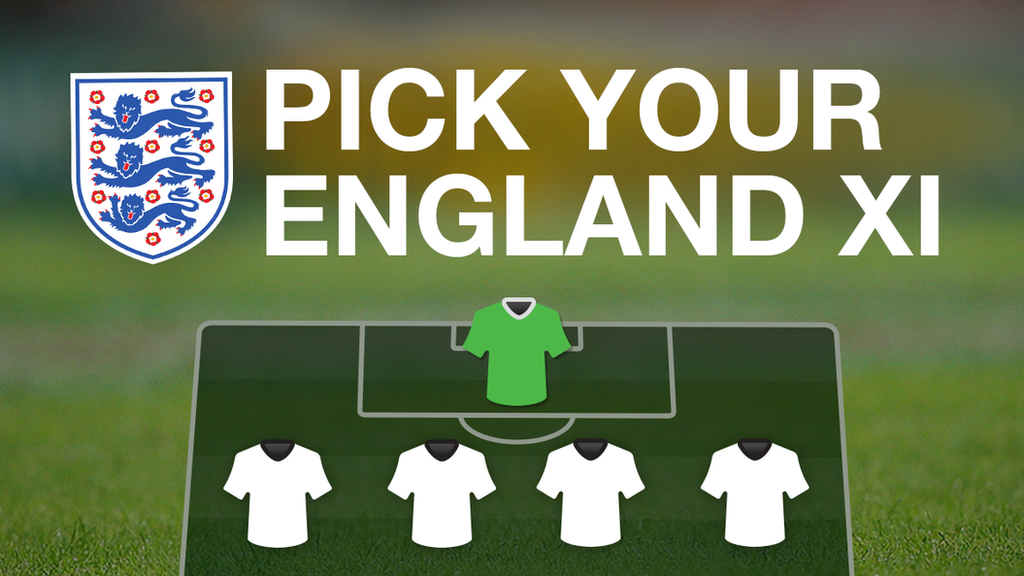
- Published28 June 2016
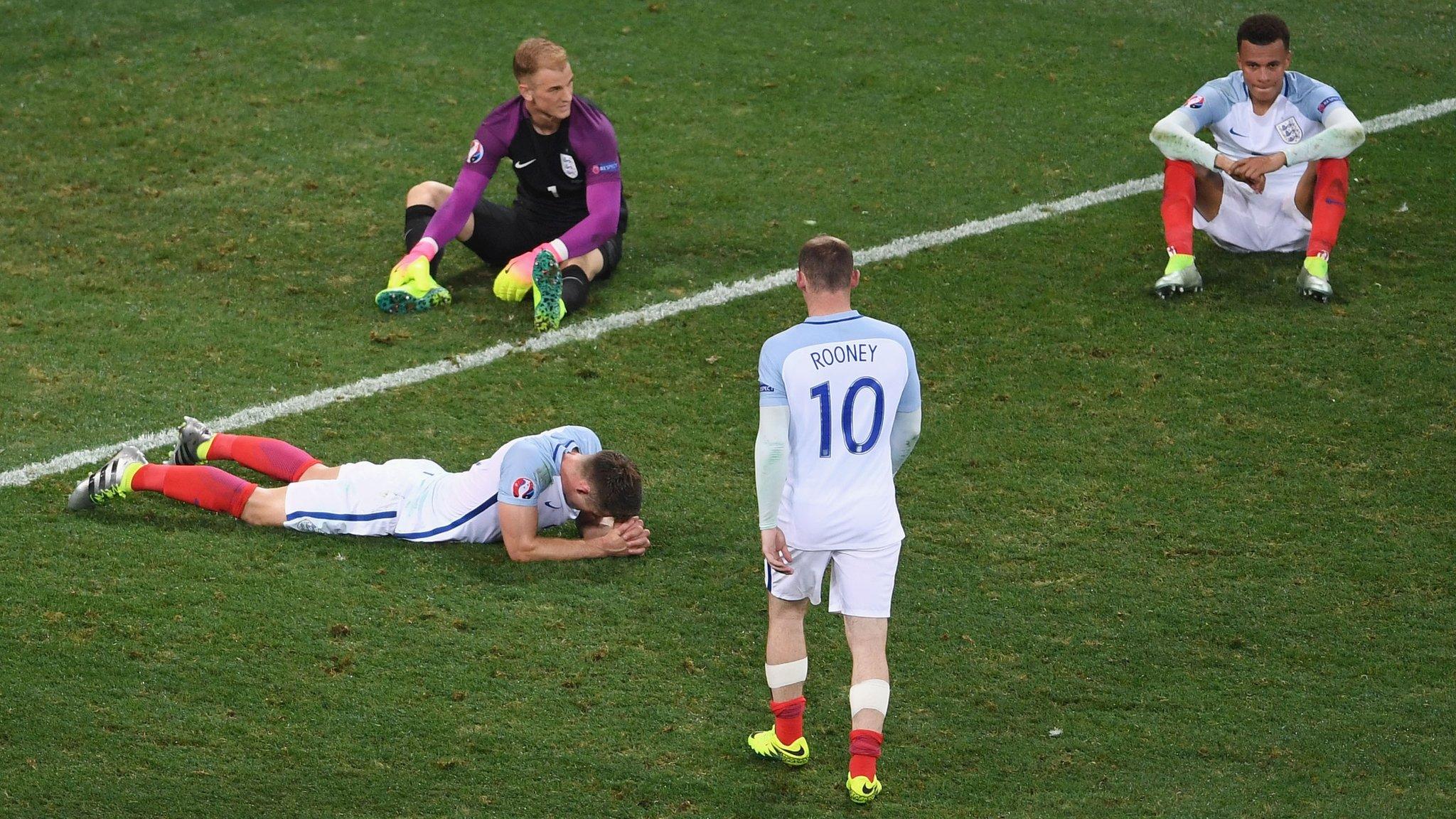
- Published28 June 2016
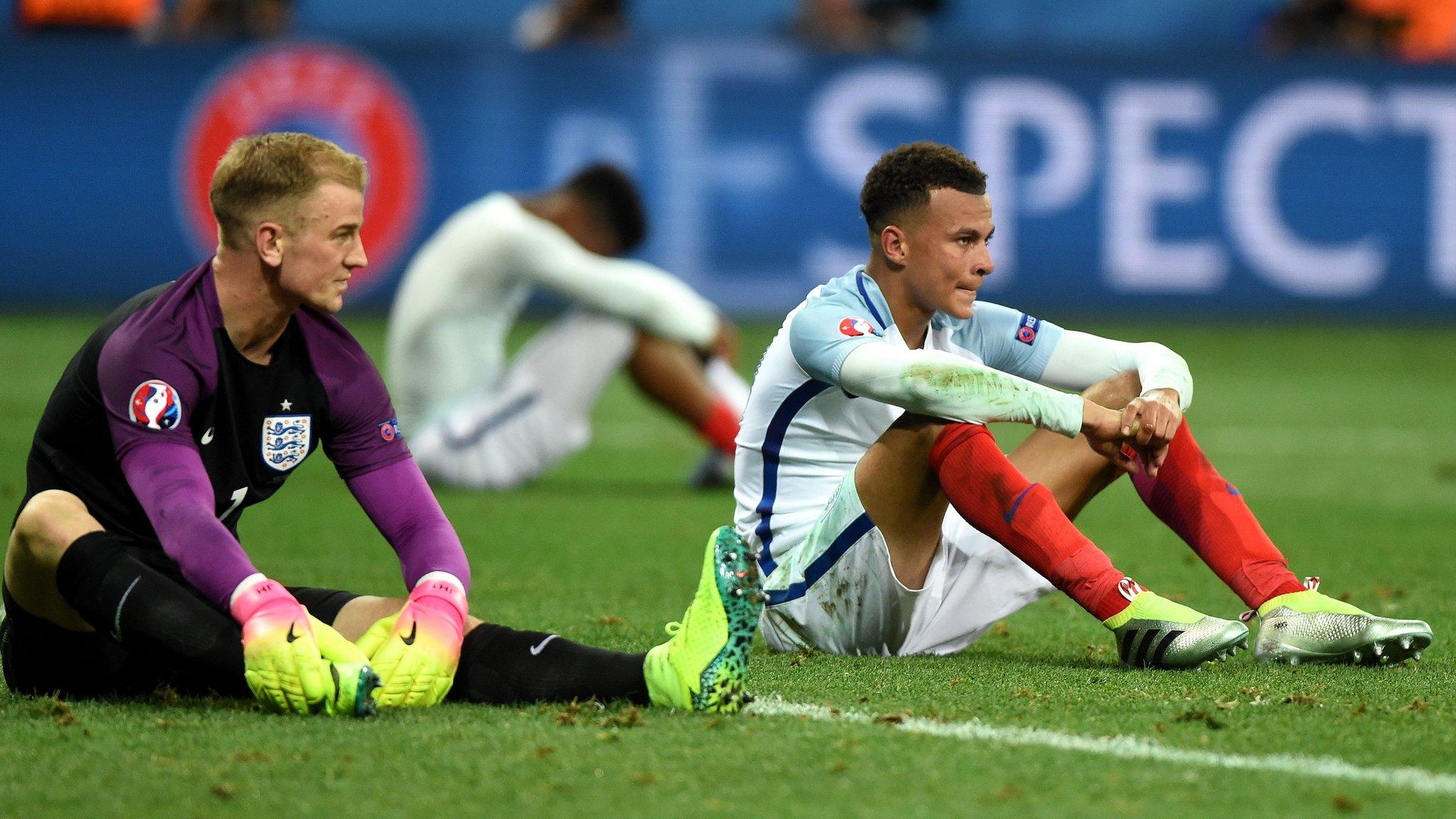
- Published27 June 2016
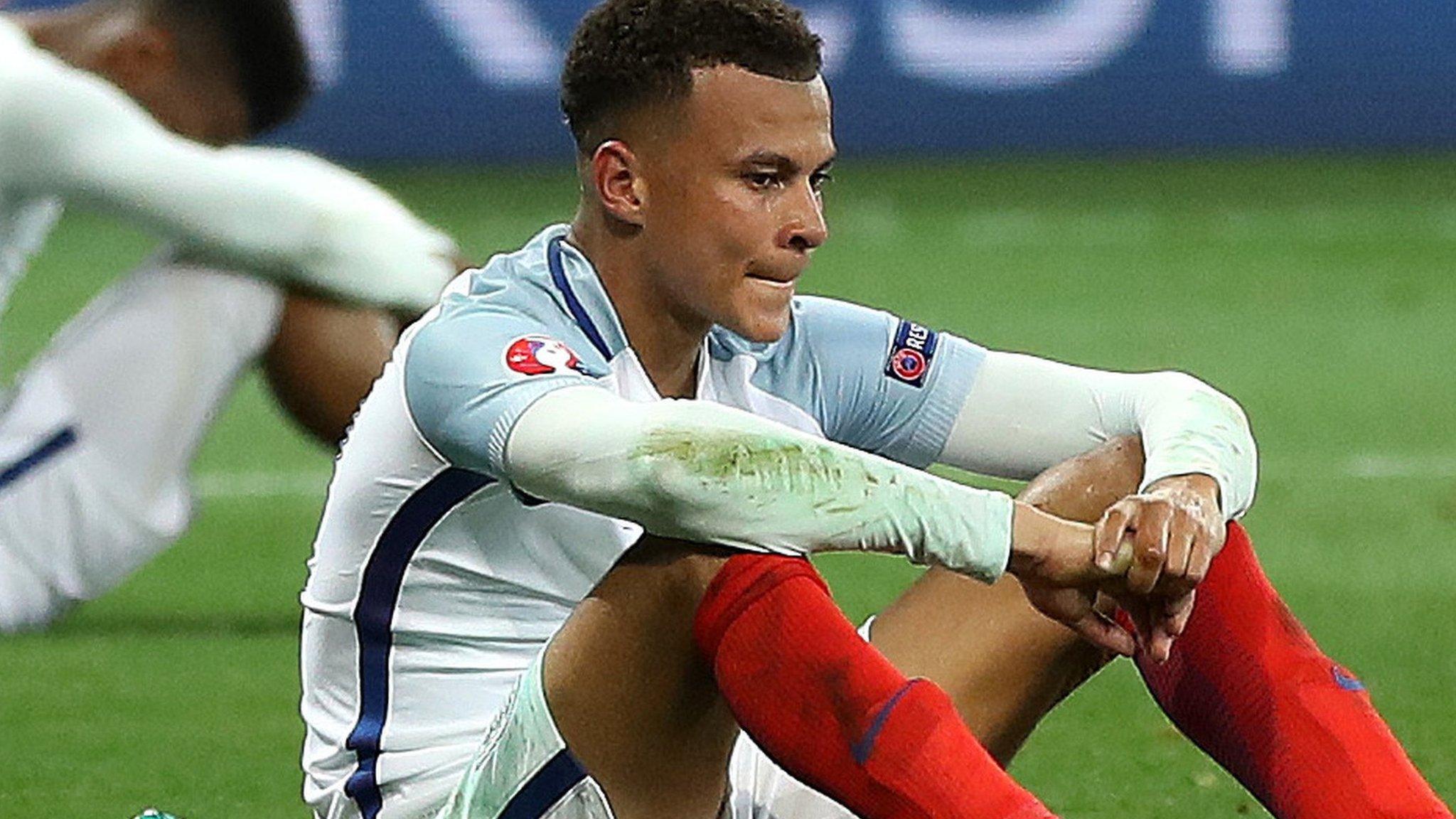
- Published28 June 2016
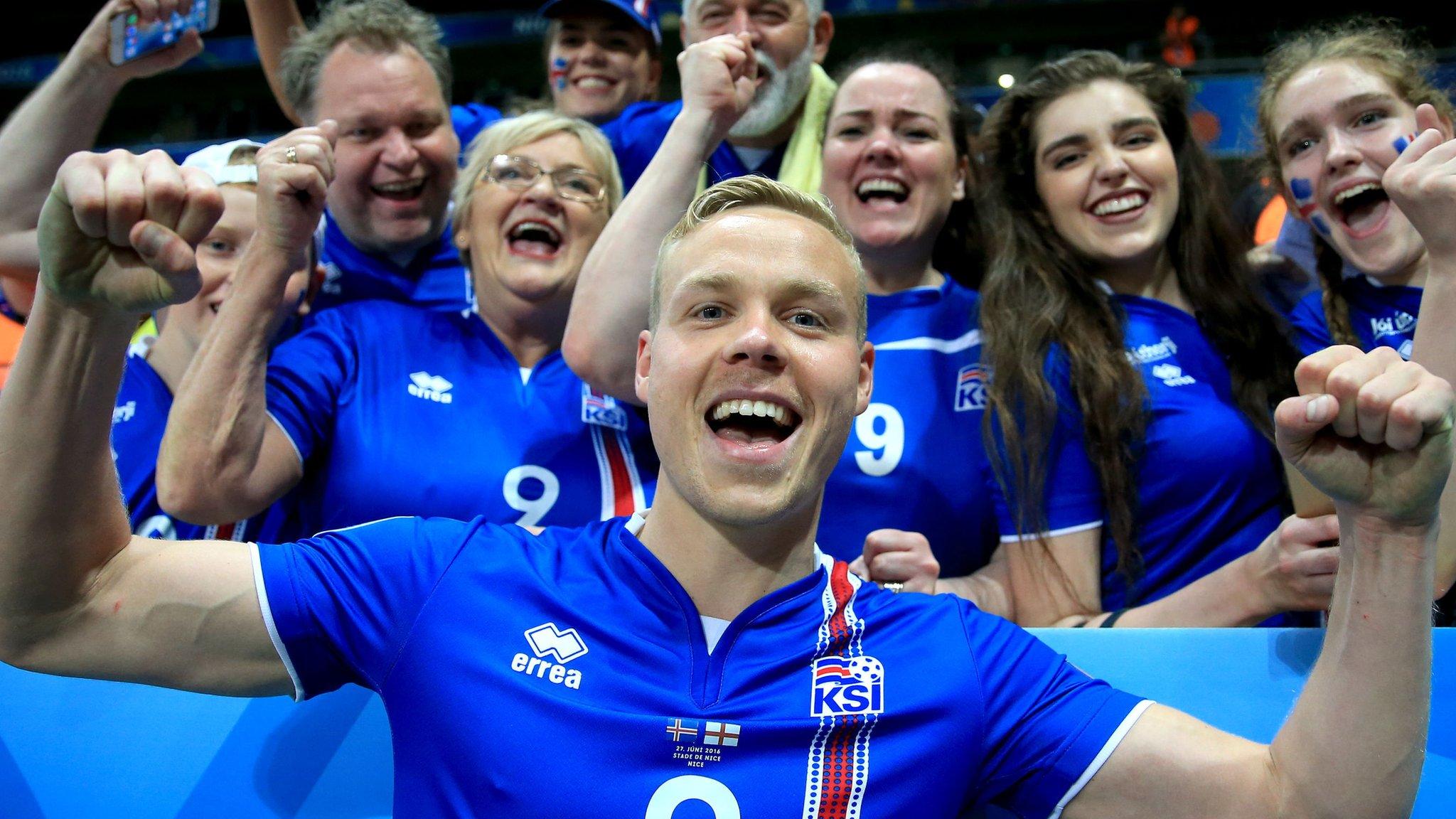
- Published20 June 2016

- Published13 May 2016
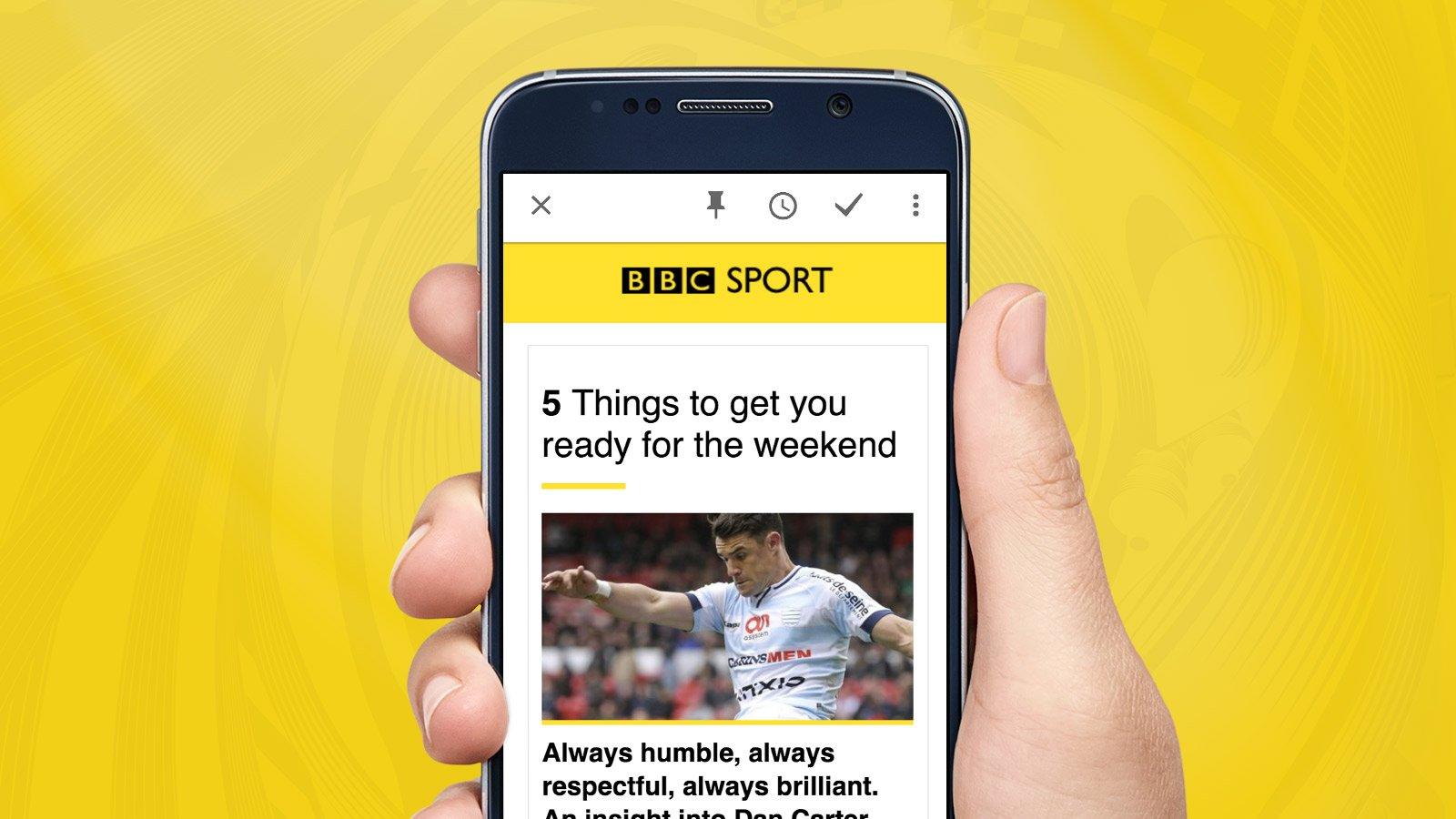
- Published7 June 2019
